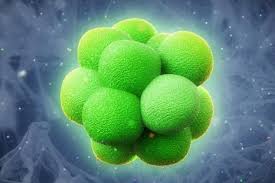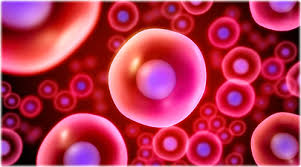Chronic Gallbladder Inflammation---the Most Common Risk for Gallbladder Cancer
 The gallbladder is a hollow organ that is beneath the right lobe of the liver. However, it is also the most common cancer case among cancer patients. Researchers have approved that there are several factors that have a close relationship with gallbladder cancer. And the chronic gallbladder inflammation is the most common one.
Why is the chronic gallbladder inflammation common one? For instance, the gallbladder might release bile more slowly when someone is suffering from gallstones. This also will cause the gallbladder cells to be exposed to the chemicals in bile for longer than normal case, which will lead to irritation and inflammation.
Based on this theory, scientists are beginning to explore how these risk factors, such as inflammation, can lead to certain changes in the DNA of cells and make them grow abnormally and form cancers. In addition, they also propose another example, abnormalities in the ducts that carry fluids from the gallbladder and pancreas to the small intestine may cause juices from the pancreas to flow backward in the gallbladder and bile ducts. And then the reflux of pancreatic juices will inflame and stimulate growth of the cells lining the gallbladder and bile ducts.
Although some DNA mutations are inherited from parents, which is the main reason for the break of certain cancers, as for very many gallbladder cancers, it is not believed that the inherited gene mutations are not the main causes.
The gene mutations for gallbladder cells, ocular cells, as well as oral cells are usually acquired during life rather than being inherited. And some genes, including KRAS, BRAF, CDKN2 and HER2, also play a crucial role in gallbladder cancers.
That’s why scientists believe that the chronic gallbladder inflammation is the most common factor for causing gallbladder cancer rather than gene mutations.
The gallbladder is a hollow organ that is beneath the right lobe of the liver. However, it is also the most common cancer case among cancer patients. Researchers have approved that there are several factors that have a close relationship with gallbladder cancer. And the chronic gallbladder inflammation is the most common one.
Why is the chronic gallbladder inflammation common one? For instance, the gallbladder might release bile more slowly when someone is suffering from gallstones. This also will cause the gallbladder cells to be exposed to the chemicals in bile for longer than normal case, which will lead to irritation and inflammation.
Based on this theory, scientists are beginning to explore how these risk factors, such as inflammation, can lead to certain changes in the DNA of cells and make them grow abnormally and form cancers. In addition, they also propose another example, abnormalities in the ducts that carry fluids from the gallbladder and pancreas to the small intestine may cause juices from the pancreas to flow backward in the gallbladder and bile ducts. And then the reflux of pancreatic juices will inflame and stimulate growth of the cells lining the gallbladder and bile ducts.
Although some DNA mutations are inherited from parents, which is the main reason for the break of certain cancers, as for very many gallbladder cancers, it is not believed that the inherited gene mutations are not the main causes.
The gene mutations for gallbladder cells, ocular cells, as well as oral cells are usually acquired during life rather than being inherited. And some genes, including KRAS, BRAF, CDKN2 and HER2, also play a crucial role in gallbladder cancers.
That’s why scientists believe that the chronic gallbladder inflammation is the most common factor for causing gallbladder cancer rather than gene mutations.


Your email address will not be published. Required fields are marked *